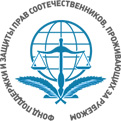Speech of LHRC co-chairman A. Dimitrovs at the First UN Forum on Minority issues (Geneva, December 16, 2008) 
Speech of LHRC co-chairman A. Dimitrovs
at the First UN Forum on Minority issues (Geneva, December 16, 2008)
Dear ladies and gentlemen,
dear friends!
It is a great honour to
address you during the Forum on Minority Issues. I shall speak in my individual
capacity, not expressing opinion of the European Parliament, where I am
currently working.
As regards chapter VI of the
recommendations, I just would like to mention some
comments.
We mention the liberty of
parents or guardians to choose educational institutions for their children other
than those established by the authorities of the State. Here, I would like to
suggest adding that public financial support should be provided to such
institutions without any discrimination. In other words, if the State decides to
provide any financial support to private educational institutions, such support
is to be provided regardless of the language of instruction or religious
affiliation of the institution. Such approach is developed also by the UN Human
Rights Committee in the case Waldman v.
Canada.
We also mention the
opportunities for persons belonging to minorities to learn their mother tongue
or learn through the medium of the mother tongue. I would like to stress that
such opportunities shall be chosen with the participation of minorities
themselves, according to their demands. Also adequate resources, such as staff,
textbooks, teaching materials, must be guaranteed. Finally, the opportunity to
learn through the medium of the mother tongue should not be limited to school
education; tertiary education in minority languages is highly
welcomed.
Further we mention transition
from the native language of the child to the dominant language. I think we must
be clear ??“ this is only one of the options. Some countries successfully
guarantee education in minority languages at all levels ??“ students learn the
dominant language as their second language, without any transition to it as the
language of instruction.
Finally ??“ one general remark.
In some countries, for example, in the Baltic countries, such as
Estonia and
Latvia, legal guarantees for public
education in minority languages have been diminished in recent years due to some
political considerations. In my opinion, where such guarantees exist, States
must refrain from limiting them, whatever reasons they refer
to.
Thank you very much for your
attention!
| 

